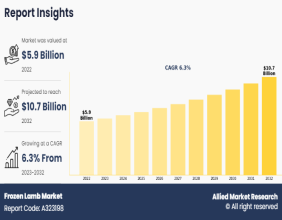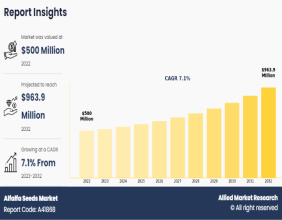The British Chamber of Commerce has revealed the results of its survey, which was called the Coronavirus Business Impact Tracker. It was used to study and identify what kind of challenges and impact businesses in the UK of all sizes are facing, and how the government’s schemes are helping them deal with this tough situation, if at all.
The results of the survey are primarily focused on the government’s Job Retention and the Wage support schemes, in which the government had promised to pay 80 per cent of salaries of all the furloughed staff of the companies that subscribe to this programme. It was reported that around 71 per cents of the respondents of the survey had furloughed their staff, which was an increase from 66 per cent that was reported during the previous week. The scheme had gone live on the Government of UK’s platform on 20th April 2020. Around 30 per cent of respondents of the survey also said that they had furloughed between 75 per cent to 100 per cent of their employees, meaning between 3/4th to their entire workforce was put on the government’s wage support programme.
A major factor behind this has been revealed to be a significant cash and liquidity crunch that businesses are currently facing. The situation in the UK is so grim that even the bigger businesses have not been spared and a number of companies have announced that they would either defer the dividend payments for the current period or will cancel them altogether. They have also announced the cancellation of bonuses and special payments that had to be made so that they can reserve cash during this challenging period. A large number of firms, approximately 59 per cent of the total respondents from the survey, especially in the retail sector are only left with three months’ worth of cash and hence, subscribing to the government’s Job Retention Scheme had become a necessity rather than an option.
While a lot of the firms have made a decision to subscribe to the scheme, around 28 per cent of the total respondents also said that they wouldn’t be furloughing any staff during this period and will continue to pay them their regular salaries, even during this pandemic phase.
Other than the Job Retention scheme, the government has also announced many other programmes to support the business of all sizes during this period.
UK Government’s Economic Schemes to fight the coronavirus
As soon as the government’s job retention online platform went live on Monday, 20th April 2020, it was reported that approximately 140,000 claims were filed the day itself, and now that the demand is on the level that was previously anticipated by the government, it remains to be seen if the government will be able to make payments within 6 working days of the claims being filed, as was announced previously. This is also important as the payment date for the people who might have filed the claims in the last three days will receive their payments close to their general paycheque dates if the government is able to process these claims in a timely manner. The British Chamber of Commerce representatives were also quoted saying that the process will be conducted by Her Majesty’s Department of Revenue and Customs (HMRC) and their response has been encouraging, while they also hope this continues as it is the responsibility of the government to protect jobs and livelihood in the country and ensure that all citizens are able to put food at their tables, especially during such a tough phase for the entire economy.
Impact on the self employed
While the Job Retention Scheme has secured the short term wages for the people who had been employed, the Enterprise Research Council also published a study on the likely impact of the Covid-19 Pandemic on the people who have been self-employed. It was reported that proportionally, more self-employed people are at the risk of facing tougher challenges from the Coronavirus, as compared to people under employment contracts with various businesses. It was highlighted that areas such as construction and transportation, where the highest number of people working are self-employed, are most likely to be facing significant challenges, primarily due to the restrictions on all activities in the country and a very little support from the government being directed towards these people. It was also reported that Self-employed women would be at a higher risk during this period to lose their livelihoods as compared to self-employed men. The study presented a conclusion to this, stating that around 22 per cent of total self-employed people in the country, or 1.1 million citizens in absolute terms are facing a significant risk of losing their livelihood completely during this period. This is also expected to have long term consequences as if there is a permanent loss for these people in self-employed activity, then there is a chance of a decline in the self-employed activities in the country, which was on the rise consistently since after 2008 Financial and Mortgage Crisis.
An interesting aspect of this study was the understanding of how this impacts people in the context of household and not just at a macro level. It was reported that a loss of self-employment is generally detrimental as research shows that self-employed people in most cases are the sole breadwinners of their families or single parents, and in such a case, the financial distress to individual families could be even more severe, which would have an impact on house rent or mortgage payments, other credit payments, general living expenses, and hence, the government’s focus should be on identifying a way through which they could help self-employed people in their worst financial situations during the coming months.
ONS Data – Employment in the United Kingdom
On 21st April 2020, the Office for National Statistics revealed its latest statistics for employment in the country between the months of December 2019 to February 2020. Surprisingly, it was reported that during this period, the UK employment levels were at a record high of 76.6 per cent, an increase of 0.4 percentage points year on year as compared to the same period during the previous year, while there was a growth of 0.2 per cent quarter on quarter.
(Source: Office for National Statistics)
It was reported that the primary driver for this increase was due to the rise in the employment levels for women, which was reported to be at 72.684 per cent, an increase of 0.9 per cent compared to the last year, and a quarter on quarter increase of 0.3 per cent. For men, the employment rate was at 80.47 per cent, almost the same as of the last year.
Over the past few years, the rate of growth for women employed full time has been significantly higher than for men, with women being the key cause of the sharp increase in fulltime jobs. The number of women working full-time increased by 10.1 per cent for December 2019 to February 2020 compared with the same period four years earlier, while the number of men working full-time decreased by 3.6 per cent during the same period. By comparison, the number of women working part-time rose by 2.7 per cent and the number of men working part-time by just 1.2 per cent.
The interesting thing to note here is that these statistics have been published till the month of February when the coronavirus pandemic was still not at its peak in the United Kingdom, and all activity was going on normally. The real threat started surfacing in the early part of March, while the restrictions of lockdown were imposed during the last week of March, and hence, there is anticipation by the experts that these employment statistics are likely to go down when next results are produced by the ONS on 21st May 2020. It is also expected that since women are at more risk of losing their jobs, as compared to men, the increase in women’s employment in the country could also get wiped out, which consequently be really scary for the economy. With all this under consideration, the most positive thing comes from the fact that the UK employment was at its record high just prior to the coronavirus outbreak, and if and when there is a recovery from the pandemic, UK could well and truly be back on track in terms of employment from the get-go itself.




